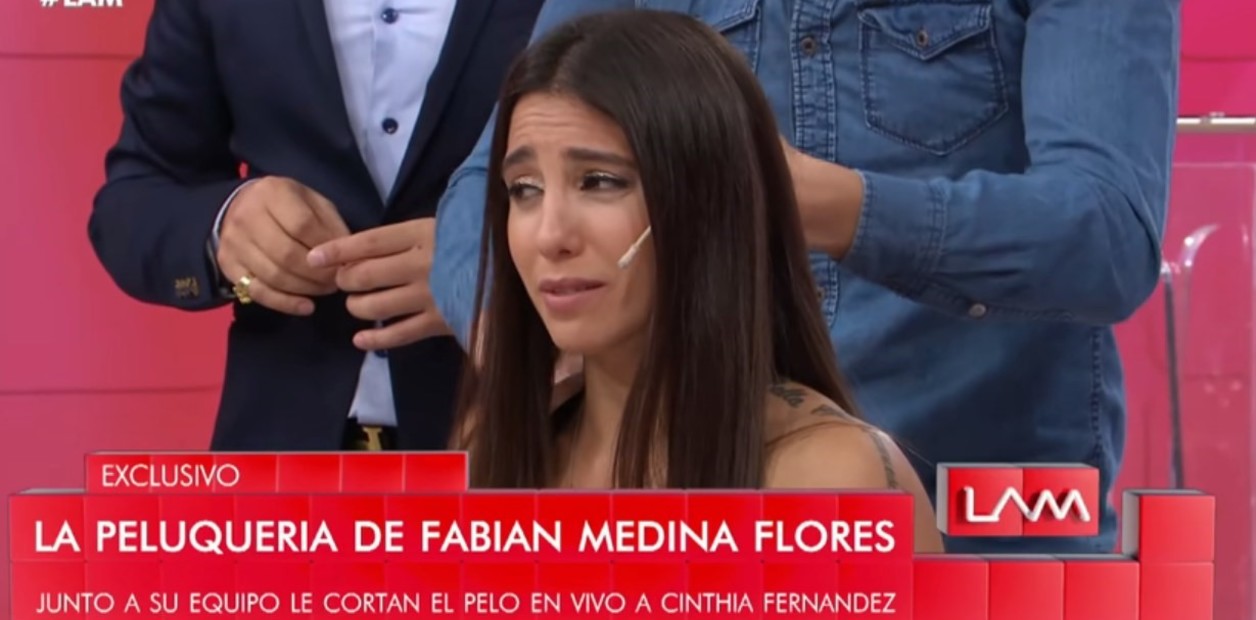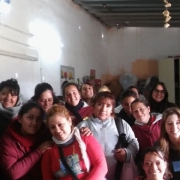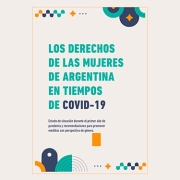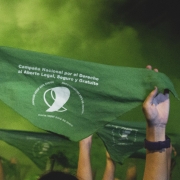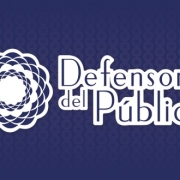Again macho soup in the media
As part of our work monitoring public policies regulating the media, we identify situations of media and symbolic violence and carry out the corresponding complaints. On this occasion, it was about the broadcasts of two television programs: on the one hand, “Los angeles de la mañana” on Canal 13 and, on the other, “Animales sueltos” on América TV.
“Below, we offer a google translate version of the original article in Spanish. This translation may not be accurate but serves as a general presentation of the article. For more accurate information, please switch to the Spanish version of the website. In addition, feel free to directly contact in English the person mentioned at the bottom of this article with regards to this topic”.
What happened in “Los angeles de la mañana”?
In the program broadcast on May 14, “Los Angeles de la mañana” (a magazine directed by Ángel De Brito) made a “change of look” to Cinthia Fernández, which consisted of a haircut. During the same, Cinthia said repeatedly that he did not want to be cut, but gave in to the insistent pressure from his colleagues. In this situation, he mentioned that he did not want to be cut too much, and that he wanted to see how far they cut it, setting the limits for the intervention. Its manifestations were reduced with comments like “it is not elegant what you have”, “do not be silly, hair grows”, “you do not have to see it”, “they brought you here to be better”.
During the haircut Cinthia was seen nervous, scared, pressed and uncomfortable with the situation. The driver and the panelists were all the time commenting about their appearance in a demeaning way and without letting it intervene. “I want to cry, I’m serious,” “I’m having a hard time,” he said, about the end.
We are concerned that television exposes such a violent situation, especially the exercise of acts on the body of women without their consent. It is clear that she consented to agree to the change of look, but this was not carried out under her terms, but was systematically pressed and all her comments and expressions of desire were minimized.
What happened in “Animals loose”?
On May 16, in the program broadcast by America, media and symbolic violence was again committed. Towards the end of the program, Alejandro Fantino asked the panelist Romina Manguel: “But stop, that’s how you came?”, Referring to his clothes. The driver, ignoring the discomfort of the journalist, continued saying: “Focus on Manguel”, asking him to show his clothes and parade.
Manguel’s reaction was a nervous laugh and ask him to stop. The driver continued, insisting that the cameras focus on her and insinuating that she could find a partner. All this intervention, although brief and only at the end of the program, was extremely violent for Romina and stereotyped for women. This was accompanied by the complicity and laughter of the rest of the panel made up of men, who did nothing to stop these moments of uncomfortable reification of the only female panelist of the program.
Why are we talking about media violence and what laws protect our complaints?
Both media contents are humiliating and discriminatory, and constitute cases of mediatic and symbolic violence. Recall that the Law of Comprehensive Protection for Women 26.485 defines media violence as “that publication or dissemination of stereotyped messages and images through any mass media, that directly or indirectly promotes the exploitation of women or their images , injure, defame, discriminate, dishonor, humiliate or threaten the dignity of women, as well as the use of women, adolescents and girls in pornographic messages and images, legitimizing inequality of treatment or construct sociocultural patterns that reproduce inequality or generators of violence against women “. In this sense, according to articles 70 and 71 of the Audiovisual Communication Services Law 26,522 all media outlets are obliged to comply with 26.485 in addition to “avoiding content that promotes or incites discriminatory treatment based on race, color, sex, sexual orientation, language, religion, political or other opinions, national or social origin, economic status, birth, physical appearance, the presence of disabilities or that undermine human dignity or induce to behaviors that are harmful to the environment or to the health of people and the integrity of children or adolescents “.
What organisms do we denounce and what for?
Attentive to this normative framework, as well as to the great responsibility -particularly in Argentine society- of the media to construct meaning and form an opinion, we have denounced these situations in front of the Ombudsman’s Office, the INADI radio and television Observatory and the Observatory of symbolic and media violence of the INAM. We hope that these agencies take the necessary actions in this regard and we commit ourselves to continue ensuring the effective execution of existing public policies, as well as promoting those that still need to be created to fight against this and all types of gender violence.
More info:
Denunciamos a Eduardo Feinamm por sus dichos homo-odiantes sobre Facundo Nazareno Saxe
Denunciamos a TN por violencia mediática y simbólica
Denuncia al programa Animales Sueltos por tratamiento discriminatorio de la información
El Show de la Mañana otra vez incurrió en violencia mediática
Author:
Mariana Barrios Glanzmann
Contact:
Cecilia Bustos Moreschi, cecilia.bustos.moreschi@fundeps.org

